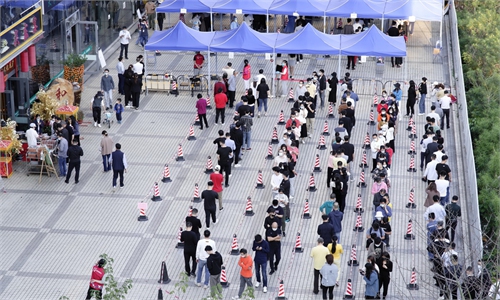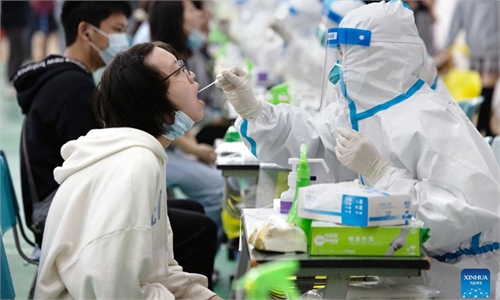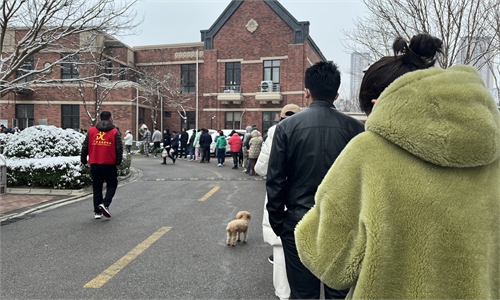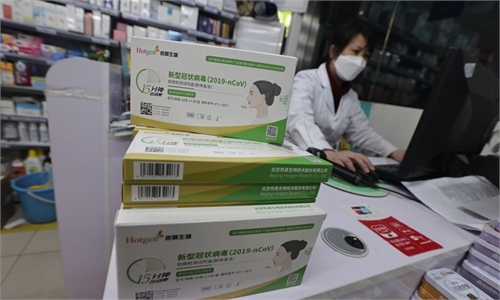Too early to treat COVID-19 fueled by Omicron like seasonal flu: senior Chinese expert from NHC

Residents line up for COVID-19 nucleic acid tests in Hangzhou, East China’s Zhejiang Province on March 11, 2022. China is facing extensive domestic flare-ups, registering 1,100 infections, including silent carriers the day after counting more than 500 cases for three consecutive days. Photo: IC
It is too early to treat COVID-19 driven by Omicron like seasonal flu, Liang Wannian, head of the COVID-19 response expert panel under Chinas National Health Commission (NHC), said as the virus transmission rate and harm brought to human health is still higher than that of flu.
For individuals, the rate of developing severe symptoms is dropping, but with the fast transmission rate of Omicron, it could propel infection rate in a short period of time and bring the number of infections to a high level, which means, the absolute number in severe cases and deaths would also be high, Liang said in an interview with national broadcaster CCTV. In this sense, the high number of severe cases and deaths could cause huge harm for a region and the country, Liang explained.
Liang said that because of the fact that Chinas virus prevention and control has been good and the recent misunderstanding such as that the pandemic is over, it has led some local governments and people to relax their efforts in the fight against COVID-19. Liang warned it is not the right time to abandon the existing policy of virus control and that doing so would make the achievements of the past two years useless.
The main strategy for preventing imported cases and a domestic epidemic rebound, and the main policy of dynamic zero-case have proved to be effective in ensuring the health and protecting the lives of people, Liang said, noting that it also helped to strike a balance between epidemic prevention and economic development.
Liang said since the pandemic is far from being over, it is still the main threat to the country as shown by the recent outbreaks fueled by Omicron in multiple provinces, so China should stick to its current policy. Omicron brings high percentage of mild cases and asymptomatic cases, so it easily spreads from one population to the other and from one country to another, Liang said.
Data compiled by the NHC on Monday showed that the country registered 1,947 confirmed cases and 2,384 asymptomatic cases on Sunday alone. With the current virus prevention and control measures, China has effectively contained the upward infections, Liang said, adding that "we are racing against the virus and must act swiftly and stamp it out when it is still in buds."
Global Times




